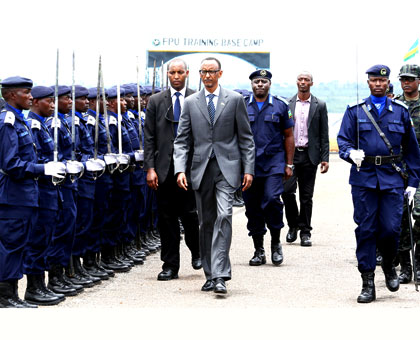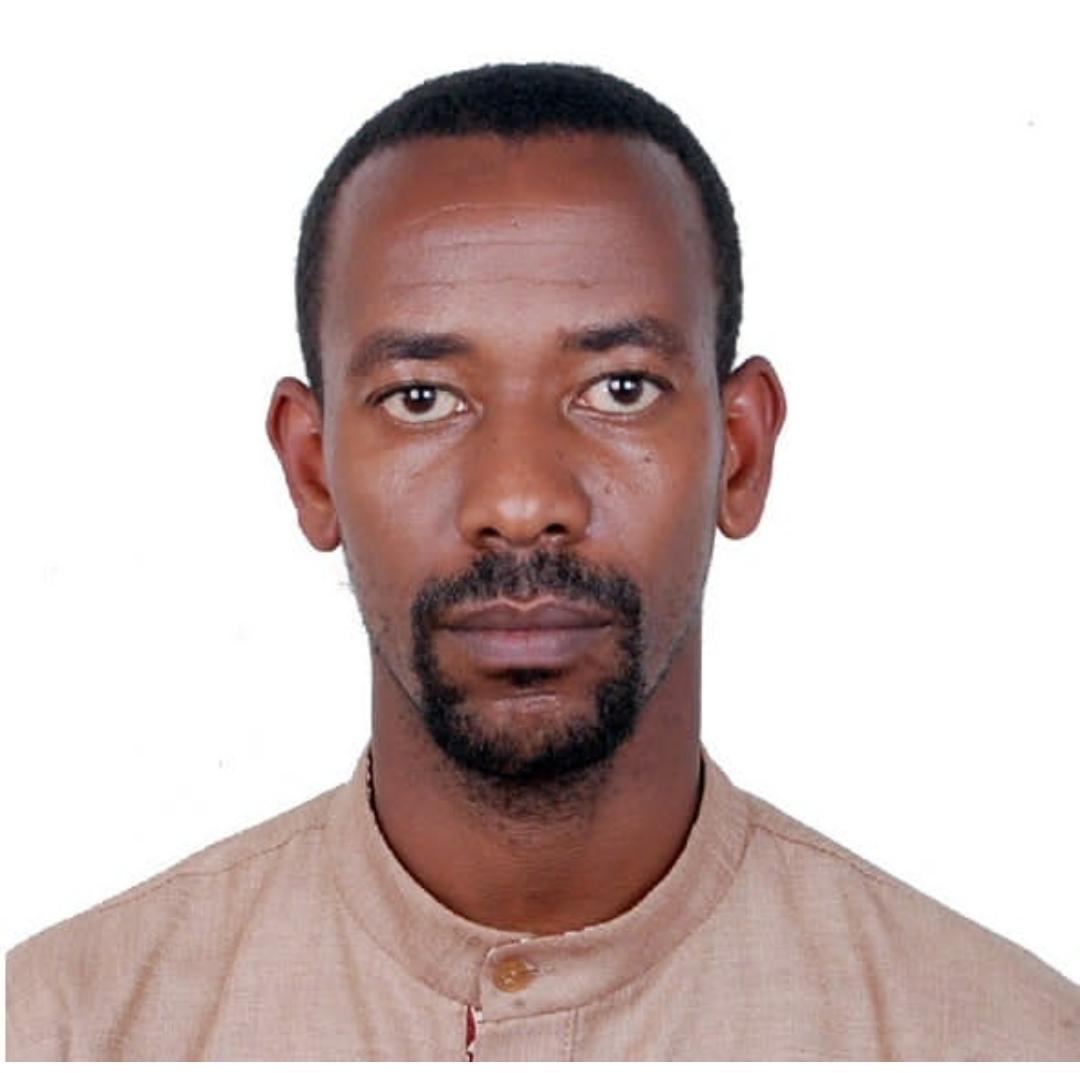The security of Rwandans will remain a top priority for the Government alongside economic transformation, President Kagame has said.


The security of Rwandans will remain a top priority for the Government alongside economic transformation, President Kagame has said.
The President invited all Rwandans to play their part in consolidating the country’s gains over the years.
He was speaking, yesterday, at the commissioning of 458 police cadet-officers, including 87 female and 41 officers attached to the Rwanda Correctional Services (RCS), at their pass-out ceremony at the Police Training Academy in Gishari, Rwamagana District.
President Kagame warned against cross-border crime, and urged vigilance both among security organs and the public.
He called on regional security organs to collaborate in tackling common security threats and lay emphasis on prevention.
"Unfortunately some of those we should be partnering with (in ensuring security) may at some point be working with those who are causing insecurity in other countries, which makes it a complex task,” he added.
The Head of State made reference to grenade attacks that claimed innocent lives and injured innocent Rwandans in recent years. "These terrorist acts were planned outside Rwanda. Nothing suggests that those responsible have let go of their ill-intentions.”
Kigali blames the grenade attacks on negative elements, including dissidents based in South Africa – the founders of the Rwanda National Congress – and DR Congo-based Democratic Forces for the Liberation of Rwanda (FDLR) militia, largely responsible for the 1994 Genocide against the Tutsi.
President Kagame emphasised his commitment to the security of the people of Rwanda.
"My job is not to be accountable to NGOs or to entertain those who compromise Rwanda’s security,” Kagame said. "My primary responsibility is to the people of Rwanda, their development and their security.”
We will continue to use our modest means to ensure we protect Rwandans and development gains, he said.
Kagame recognised the cadet officers, and reserved a special mention for women officers who undertook the course.
Historically, such professions were strictly meant for men but things have since changed, proving equal capability for men and women to pursue a career in this profession, he said.
This was the sixth police cadet pass-out since the establishment of the Force 14 years ago and the first at the Police Training Academy. Previous pass-outs were held at National Police Academy in Musanze District.
The officers had spent one year at the cadet course and the President gave them the rank of Assistant Inspector of Police (AIP).
President Kagame commended the leadership of the Force and the trainers for a job well done. "This is an important training; it equips the officers with skills, the right attitude and the ability to provide security for all Rwandans. The Rwandan Police has grown to a level where they are not only keeping law and order but also partaking in the development of the country.”
President Kagame later toured Gishari Integrated Polytechnic which he described as an initiative that helps empower the public and police officers with vocational skills. "This initiative contributes to national development and embodies that partnership that exists between the police and the public.”
The commandant of the Academy, Commissioner of Police Joseph Mugisha, said the graduates went through a rigorous training and enriching course.
"The course provided officer-cadets with necessary skills in relation to leadership, management and development as well as professional policing,” he said.
The event was attended by senior government officials, military officers and families of the cadet-officers.
President Kagame also recognised the top three officers who emerged best performing students during the course.
Apollinaire Rudatinya emerged the best, followed by Jean Bosco Ndindabahizi , while Alphonsine Murekatete came third.


